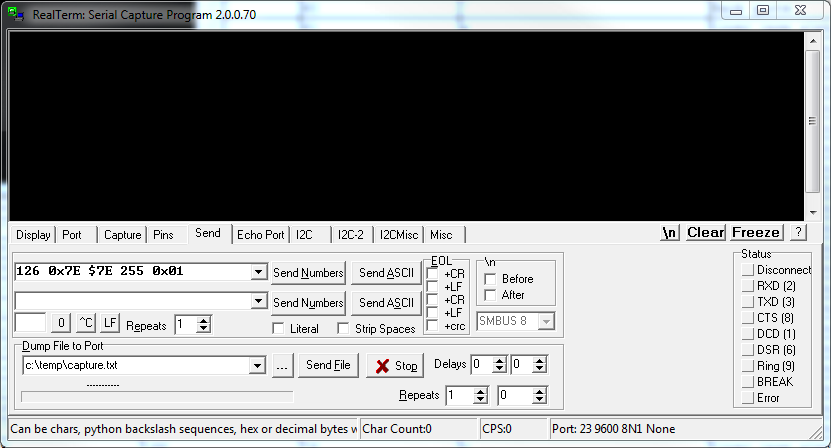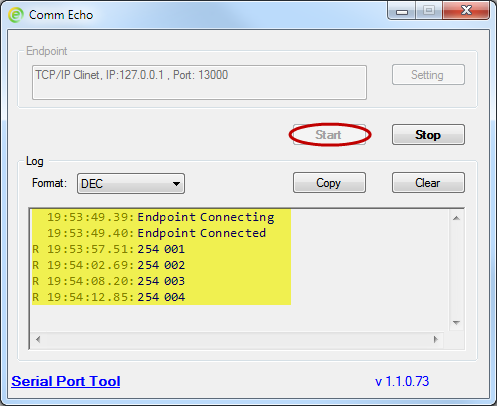Linux Test Serial Port Echo
In the old days, we used telnet to see if a port on a remote host was open: telnet hostname port would attempt to connect to any port on any host and give you access to the raw TCP stream. Manual Moulinex Ovatio 3 Duo more. These days, the systems I work on do not have telnet installed (for security reasons), and all outbound connections to all hosts are blocked by default. Over time, it's easy to lose track of which ports are open to which hosts. Is there another way to test if a port on a remote system is open – using a Linux system with a limited number of packages installed, and telnet is not available? Bash has been able to access and ports for a while. From the man page: /dev/tcp/host/port If host is a valid hostname or Internet address, and port is an integer port number or service name, bash attempts to open a TCP connection to the corresponding socket.
/dev/udp/host/port If host is a valid hostname or Internet address, and port is an integer port number or service name, bash attempts to open a UDP connection to the corresponding socket. So you could use something like this: xenon-lornix:~>cat. The simplest method, without making use of another tool, such as socat, is as described in @lornix's answer above. This is just to add an actual example of how one would make use of the psuedo-device /dev/tcp/.
Serial Port Devices /dev/ttyS2. Or ttyS0-ttyS3 in Linux, most serial ports on the newer PCI bus used higher numbers such as ttyS4. Of a test serial port. A loopback test allows you to send and receive data from the same serial port to verify that the port is operational. To perform this test, you need to temporarily. Writing to serial port from linux command line. To the specified serial port. Browse other questions tagged linux serial-port virtualbox. Mp3 2018 - Download Free Mp3 Linux Test Serial Port Echo.All of video/mp3 that appear on this page were found from internet. The WebMaster does not hold any Legal Rights of Ownership on them.

Within Bash if you wanted to, say, test if another server had a given port accessible via the command line. Examples Say I have a host on my network named skinner. $ (echo >/dev/tcp/skinner/22) >/dev/null 2>&1 && echo 'It's up' echo 'It's down' It's up $ (echo >/dev/tcp/skinner/222) >/dev/null 2>&1 && echo 'It's up' echo 'It's down' It's down The reason you want to wrap the echo >/dev/. In parentheses like this, (echo >/dev/.) is because if you don't, then with tests of connections that are down, you'll get these types of messages showing up.

$ (echo >/dev/tcp/skinner/223) && echo hi bash: connect: Connection refused bash: /dev/tcp/skinner/223: Connection refused These can't simply be redirected to /dev/null since they're coming from the attempt to write out data to the device /dev/tcp. So we capture all that output within a sub-command, i.e. (.cmds.) and redirect the output of the sub-command. I found that curl may get the job done in a similar way to telnet, and curl will even tell you which protocol the listener expects. Construct an HTTP URI from the hostname and port as the first argument to curl.